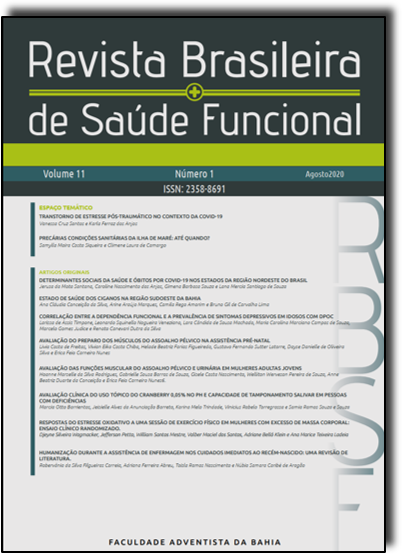SOCIAL DETERMINANTS OF HEALTH AND DEATHS OF COVID-19 IN THE STATES OF THE NORTHEAST REGION OF BRAZIL
DOI:
https://doi.org/10.25194/rebrasf.v8i2.1305Abstract
Introduction: A COVID-19 pandemic is a serious public health problem underway in Brazil and worldwide. This pandemic showed in Brazil the influence of social determinants of health (SDH) in the process of illness and death.
Objective: To identify the relationship between SDH and deaths from COVID-19 in the Northeast region of Brazil.
Methodology: Ecological study, with a secondary database, with the states of the Northeast as the unit of analysis. Lethality Rates by COVID-19 were calculated. To assess the correlations between SDH and deaths from COVID-19 in the Northeastern population, Kendall tau Correlation analysis was performed. To assess the influence of the Lockdown strategy adopted by the states under the number of cases, lethality and mortality of COVID-19, the Mann-Whitney test was used, considering it statistically significant when p <0.05.
Results: In the Northeast region, the highest Mortality Rate was identified in Ceará (78.5/100,000 inhabitants) and the lowest in Bahia (18.8/100,000 inhabitants). There was a positive and statistically significant correlation between deaths from COVID-19 and the variables race/color (p=0,01), water network (p=0,02), sanitary facilities (p=0,03) and garbage collection per household (p=0,01). The number of hospital beds available in the states showed an inverse and statistically significant relationship with the outcome under study (p=0,05). The states that adopted Lockdown early were those with a high number of cases (p=0,05) and deaths from the disease (p=0,01).
Conclusion: This study revealed a high mortality rate COVID-19 and its relationship with the SDH in the states of the Northeast region of Brazil, concluding that social and economic factors are decisive in the process of illness and death.


